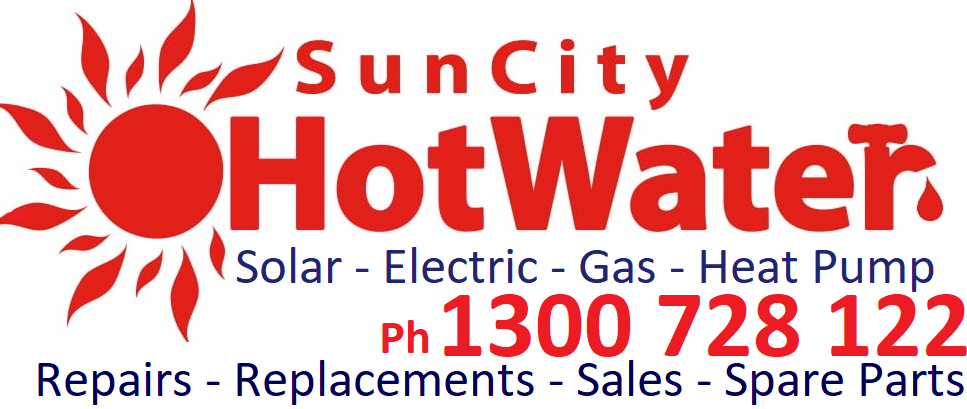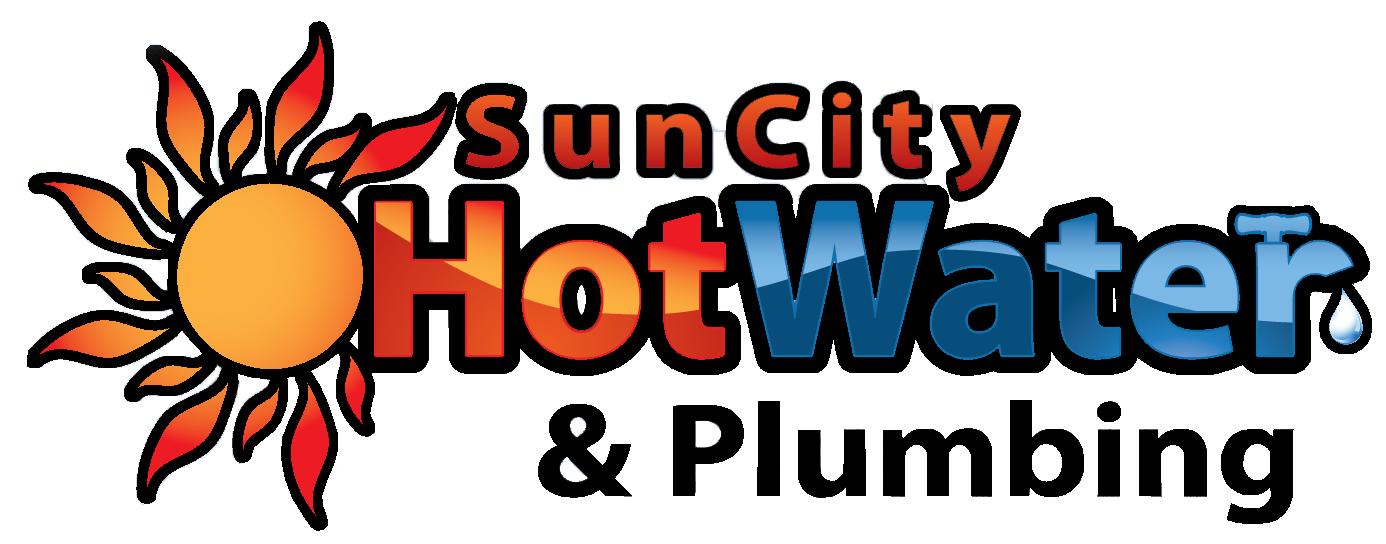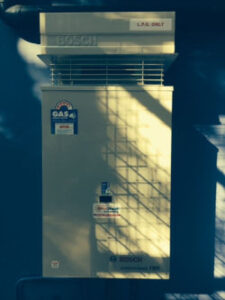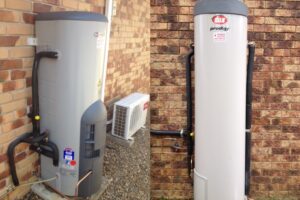~ A Comprehensive Guide ~
Hot water systems have an average lifetime of around 10 years, so it’s safe to say that when it comes time to choose a hot water system it’s not a decision to take lightly. In fact, you could set yourself up for 10 years of potential savings just by putting in a little time to choose the best system for your needs. And considering that hot water accounts for 25% of the total energy bill for an average household, it’s worth doing the research.
Why Not Buy The Exact Same One?
Approximately two thirds of all hot water systems sold are to replace a broken down system. This means that buyers are in a rush to get their hot water back up and running and will usually opt for an equivalent system to have the unit replaced as quickly as possible.
However, it’s unlikely that over the course of 10 years your hot water needs haven’t changed. In fact, for most people, hot water usage will dramatically change over the course of a decade as families grow or older children move out of home, what worked for you 10 years ago may be overkill today. Plus, there will likely be many newer systems designed to be more energy efficient and environmentally friendly.
Additionally, the Australian Government has begun to implement new regulations in an attempt to reduce energy consumption, which means replacing your hot water system with an identical one may even be against the law. So to make the decision easier, we have created a comprehensive guide to choosing the right hot water system with information on every type of system all in one place.
If you want personalised, unbiased advice on the best type of hot water system for your needs, call Sun City Hot Water & Plumbing on 1300 728 122. We are not affiliated with any single hot water system manufacturer meaning we can give you a fair recommendation based solely on your requirements.

Electric, Gas, Solar or Heat Pump?
There are advantages and drawbacks to each type of hot water system, whether electric, gas, solar or heat pump. What’s right for one household may not suit the needs of another. Below is a list of the pros and cons of each type of hot water system. If you’re not sure which system to buy call Sun City Hot Water & Plumbing on 1300 728 122.

Electric Hot Water Systems
Pros
Cheap To Buy
One of the advantages of an electric storage hot water heater system is that it is relatively cheap to buy and install in comparison to other hot water heaters with small systems starting at as little as $300.
Can Be Indoors or Outdoors
Another benefit of an electric storage hot water heater is that it can be installed either indoors or outdoors. This means that it is still a viable option if indoor space is limited. Similarly, if there is no room outside for a large tank, the system is able to be installed indoors.
Electricity Is Readily Available
One of the main reasons that people choose electric hot water heaters is the fact that electricity is available almost anywhere in Australia. Conversely, many houses don’t have direct connections to the mains gas lines.
Cons
Expensive To Run
The main downfall of electric storage hot water heaters is that they are generally the most expensive hot water systems to run. This is partly due to the fact that storage systems lose heat through the tank walls throughout the entire day, and are constantly using electricity to maintain the desired water temperature.
However, some electric systems will only heat water during off-peak times which can significantly reduce the running cost of the system. But, it does mean that a larger tank is required in order to store enough hot water to last the entire day.
Slow Recovery
Another drawback of electric storage hot water systems is that once the whole tank has been used up there is a slow recovery time. This means you could be waiting hours until your hot water is back up and running again.
General Info:
Average Size Requirements (Peak): 125 to 160L tank (four person household)
Average Size Requirements (Off-Peak): 250 to 315L (four person household)
Average Price Range: from $300 to $1500 (installation not included)
Note: Electric instantaneous hot water systems are also available.
Gas Hot Water Systems
Pros
Low Running Costs
One of the biggest advantages of gas hot water systems is the low running cost. This is due to the fact that gas usually costs less than electricity and rates don’t vary throughout the day. However, if there is no connection to the gas mains from your house you will need to use LPG bottles which are significantly more expensive.
Hot Water Through Power Outages
Another advantage of a gas hot water system is that they can still provide hot water during power outages, as they are powered by gas. However, some gas hot water systems have an electric ignition, in which case they will not work in the event of a power outage.
Cons
Expensive System
The big downside of a gas hot water system is the high system cost when compared to electric hot water systems. However, due to the energy efficiency of gas hot water systems, they will usually make up for the extra upfront cost in the first year of use with their low running costs.
This should definitely be considered when choosing a system based on price as the average lifetime of a hot water system is around 10 years, so what may appear to be the cheaper option could cost you more in the long run.
Generally Has To Be Outdoors
Another potential downfall of gas hot water heaters is that they generally need to be installed outdoors, which can be an issue on some properties. Although gas hot water systems can be installed inside, they require a flue to expel the exhaust gases outside which can increase the cost of installation.
General Info:
Average Size Requirements: 135 to 170L tank (four person household)
Average Price Range: $900 to $2000 (installation not included)
Solar Hot Water Systems
Pros
Low Running Costs
One of the best features of a solar hot water system is its low running costs. As solar water heaters use free energy from the sun to heat the water, the cost of running the system is very low. The low running cost of a solar system generally makes up for the much higher upfront cost of buying and installing it.
Additionally, in most places there are rebates and government incentives you can claim when installing a solar hot water system that can offset the purchase cost.
Environmentally Friendly
Another benefit of solar hot water systems is that they are environmentally friendly. Predominantly powered by the sun, solar hot water systems use a renewable energy source and will reduce the carbon footprint of your home.
Cons
High Upfront Cost
One downside of a solar hot water heating system is the high upfront cost both for the system and the installation. On average system price alone can range from $2000 to $7000 depending on the size, and that’s not even including the installation costs.
Weather Dependent
Another drawback of solar hot water is that the system is somewhat dependent on the weather, as when the sun is not shining the system cannot heat water efficiently. This is why solar hot water systems require larger storage tanks than other systems.
However, the hot water tank in a solar system will generally have a gas or electric booster to heat the water when weather conditions won’t allow for use of solar panels.
Large System
As mentioned above, solar hot water systems require extra large storage tanks in case of adverse weather. Additionally, the solar panels required to power an average hot water system for a household of four is approximately 4 square metres – a sizeable chunk of any roof.
It’s also important to note that if the solar panels cannot be installed in an optimal position (where they can get maximum sun) you will need to install even more solar panels to [produce the same amount of energy.
General Info:
Average Size Requirements: 260 to 300L tank (four person household)
4 square metres of solar panels (four person household)
Average Price Range: $2000 to $7000 (installation not included)
Heat Pump Hot Water Systems
Pros
Energy Efficient – Low Running Costs
Heat pump hot water systems use warmth from the air to heat the tank water making them very energy efficient. In fact, for every 1kW of energy a heat pump hot water system uses it produces 5kW of heat – requiring 80% less energy than a similar gas or electric hot water system to heat the same amount of water. This makes heat pump hot water systems extremely cheap to run compared to other water heaters.
Environmentally Friendly
Heat pump hot water systems use heat from the air to heat water which is a form of solar energy. This makes heat pump hot water systems environmentally friendly. So, much like a solar hot water system, using a heat pump system will significantly reduce your carbon footprint.
Cons
High Upfront Cost
One downside of choosing a heat pump hot water system is the high upfront cost of purchasing. However, unlike solar systems, heat pump water heaters are relatively inexpensive to install. Additionally, the low running costs of the system tend to make up for the high upfront cost long before the system will need to be replaced.
Plus, there are a range of rebates and government incentives you can claim when installing a heat pump hot water system that will help offset the purchasing cost.
Requires Warm Climate
Another downfall of heat pump hot water systems is that they aren’t suited for use in extremely cold climates. This is because they use heat from the air to heat the water, so for most systems if air temperature gets below 7 degrees celsius the system won’t be able to work efficiently.
That’s why most heat pump systems come with electric or gas boosters for cold weather. Luckily, in warm climates such as Queensland, cold temperatures are not a problem.
General Info:
Average Size Requirements: 270 to 315L tank (four person household)
Average Price Range: $2500 to $4000 (installation not included)
Storage or Instantaneous Hot Water Systems?
Storage Hot Water Systems
Pros
Lower Upfront Cost
The most obvious benefit of a storage hot water system is the low upfront cost with the average cost of an instantaneous system clocking in at around 30% more than an equivalent storage system.
Consistent Flow Rate
Another benefit of storage hot water systems is that the flow rate is not limited by the number of outlets in use. This means that unlike with instantaneous systems, you can use multiple hot water outlets simultaneously without reducing the hot water flow rate to a slow trickle.
Cons
Higher Running Costs
The big downfall of storage hot water systems is the high running costs. This is due to the fact that water is heated and stored which allows for heat loss during the day through the walls of the tank. This means that the system is constantly using more energy to bring the water temperature back up to make up for heat lost through the walls of the tank.
Limited Supply
Another disadvantage of storage hot water heating systems is the limited supply of hot water. This is especially true for off-peak systems that only heat water overnight. Basically, if you use up the hot water in the tank you will have to wait until the next morning to have hot water again.
And even for storage systems that heat water during the day, once the tank of hot water has been used up there is a significant downtime of a few hours before the hot water is back up and running again.
General Info:
Average Size Requirements: 135 to 170L (four person household)
Price Difference: On average, 30% less expensive than instantaneous systems.
Instantaneous Hot Water Systems
Pros
Low Running Costs
A huge advantage of instantaneous over storage hot water systems is the low running costs. This is due to the fact that instantaneous systems heat water on demand which negates the cost of maintaining the temperature of the water while it’s stored.
Unlimited Supply of Water
Another advantage of instantaneous hot water systems is that they produce an unlimited amount of hot water meaning no downtime waiting for a tank to refill. This is due to the fact that the water is heated when required (whenever a hot water outlet is turned on).
Cons
High Upfront Cost
One downside of instantaneous hot water systems is that they are around 30% more expensive to purchase when compared with storage hot water systems. However, the low running costs of the instantaneous system will generally make up the difference in purchase price within the first year. This makes instantaneous hot water systems much more cost effective in the long run.
Limited Flow Rate
Another downfall when it comes to instantaneous hot water systems is the limited flow rate. Because the water is heated as needed there is only a limited amount that can be produced at a time. This means that the more hot water outlets that are simultaneously in use, the lower the flow rate of the water will be.
However, the flow rate should not be an issue if the hot water heater is correctly sized for your house and hot water usage. Additionally, single point hot water systems can be used on individual outlets in order to maintain a high flow rate while multiple outlets are in use.
Minimum Flow Rate Required
Instantaneous hot water systems heat the water once the minimum flow rate has been detected at a hot water outlet. (This is why if you turn on a hot water tap at only a trickle the water will be cold). However, this means that instantaneous hot water systems are not compatible with some water saving fixtures as they do not meet the minimum flow rate to trigger the hot water heater.
This can be avoided by removing water saving fixtures or ensuring that the flow rate trigger of the system is compatible with your fixtures before buying.
General Info:
Average Size Requirements: 22 to 24L/min (2 bathroom house)
Average Price Range: $750 – $1600 (installation not included)






